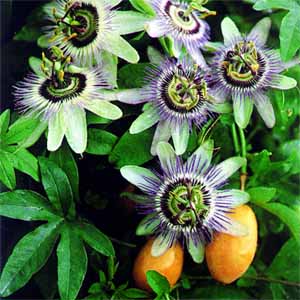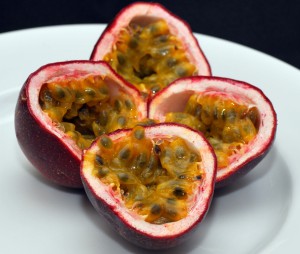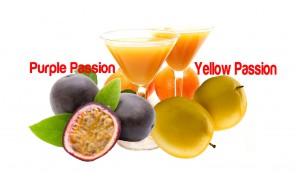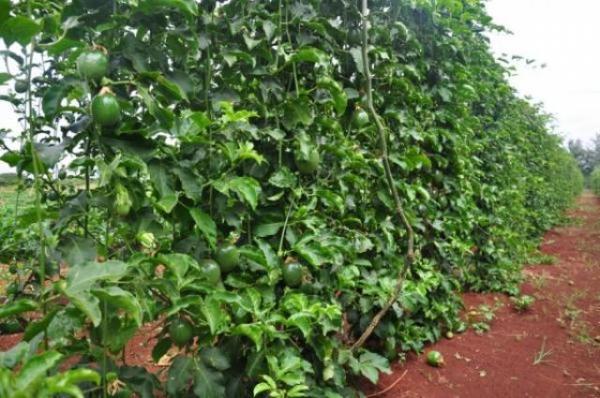Passion fruit farming has been touted as the next big business venture for Sub-Saharan countries such as Kenya. In fact, according to statistics, passion fruits contribute an average of $27 million yearly accounting for 1.1% of Kenya’s domestic value of horticultural produce. Here is a brief guide that has been prepared exclusively for you by the Kuza Biashara team.
** According to USAID, passion fruits is a potential earner for small-holders in Kenya. **]
Varieties available
There are two varieties of passion fruits that you can invest in – Purple and Yellow
varieties. The purple variety is quite popular in the local market due to its sweet flavor. The yellow variety on the other hand is mainly used by juice processing factories. If you want to serve the local market (Marikiti’s and juice vendors), we would recommend investing in the purple variety.
Cost involved
The main benefit of passion fruit farming is that it does not require a lot of space. You can plant up to 350 plants in a quarter of an acre. Each single plant, if farmed well, can produce up to 15 kilograms per year. A kilogram of passion fruit can fetch between Ksh40 and Ksh50 on the local market but this depends on the season.
In Ngara market in Nairobi for instance, a kilogram of yellow passion fruits retails at Ksh60 from January to August (off-peak season). This price may fall on the period of August to December as the market is usually flooded.
Some cost heads you might want to think about before venturing into this line of business include:

Ripe Yellow Passion Fruits
- Cost of seedlings: Ksh40 to Ksh 100 per seedling
- Poles and wire: 130 poles per quarter acre
- Labor Cost: Ksh10,000 per month
- Sprays and Fertilizer: Ksh3,000 per month
Keep in mind that there is a lot of work involved especially in regards to pruning and training the plants. On average passion fruit plants take 6 to 12 months to mature. Keep in mind that Passion vines are perennial plants with a lifespan of less than 3 years.
Regions where passion fruits do well
As with other horticultural crops, passion fruits thrive in areas with volcanic loamy soils. The crops should be planted in open ground (unlike the seedlings which are kept in a green-house set-up).
According to Joseph Karani (an expert from Fresh Produce Exporters Association of Kenya), passion fruits can be planted in any region in country provided there is adequate water. “When selecting the seedlings, ask the experts at the nursery where you’ll be buying them to find you varieties that are suitable for your region. If it is Bomet, Meru, Eldoret or Murang’a, just tell them and they’ll find you the right seedlings” adds Karani.
Normally Purple Passion does well in highland areas. Yellow passion is best grown in lowland and coastal areas.
Where to find passion fruit seedlings in Kenya
It is advisable to buy passion fruit seedlings from a recognized vendor in Kenya. Ideally, it would be nice if you get them from the Kenya Agricultural Research Institute (KARI) fields. If you’re not near any of the KARI outlets, you can look for quality seedlings from a nursery near you.
All you need to do is ensure that the nursery is registered by the Kenya Researchers Health Inspectorate (KEPHI). Green World Nurseries is one good example of a small nursery that provides high quality seedlings in Eldoret region.
Where to find market

Ready to eat Passion Fruits
- Direct Marketing
Market is readily available provided one markets their products (and has the ability to supply consistently). Small scale farmers can package and sell their products to local green grocery outlets. However, to supply big supermarkets and juice processing factories, one needs to work under a certified company.
This is a measure that has been taken to ensure highest quality standards in the market. Basically, if your produce is good, some traders will actually come looking for you.
- Export Market
Farmers in Uasin Gishu county and surrounding areas can take advantage of the export market which is readily available in the neighboring Uganda.

Ready Product
The Export Promotion Council (EPC) is currently encouraging farmers to form clusters to increase their production in readiness to supply the international market. Normally, the yellow passion is the most preferred in the export market.
The Horticultural Crops Development Authority (HCDA), is current operating something called contract farming. This is an initiative that ensures farmers are protected from exploitation in the international market.
And finally;
Of course, there is so much to learn about Passion fruit farming to Kenya. We however, hope that this article will serve as a useful guide as you move on to set up your small farming business. Kindly join our Facebook community or Twitter Fan-base and let us engage more on this and other important topics.



















